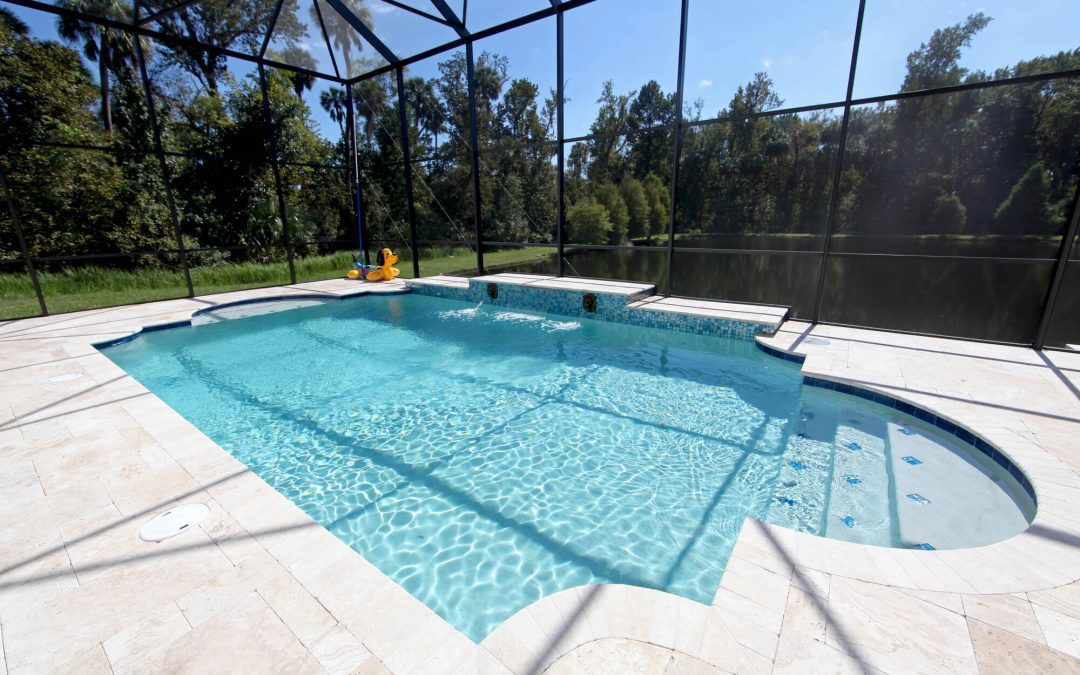Swimming Pool Maintenance
Owning a swimming pool provides relaxation and a place for family and friends to gather, but it also requires diligent care to keep it in top condition. Fortunately, with the right knowledge and a proactive approach, pool maintenance can be a straightforward task. In this guide, we’ll walk through essential steps and tips for homeowners to maintain their swimming pool effectively.
Regular Skimming and Cleaning
Regular skimming and cleaning are simple but important parts of pool maintenance. Leaves, insects, debris, and other contaminants can quickly accumulate on the surface of your pool, affecting its cleanliness and potentially clogging filters. Make it a habit to skim the surface of your pool daily to remove visible debris. Invest in a quality pool vacuum to clean the bottom and sides of the pool weekly to ensure thorough removal of dirt and algae.
Maintain Proper Water Chemistry
Maintaining proper water chemistry is vital to the health and clarity of your pool. Regularly test the water with a pool testing kit to monitor chlorine or sanitizer levels, calcium hardness, pH levels, and alkalinity. Aim for pH levels between 7.2 and 7.6, with chlorine levels between 1.0 and 3.0 parts per million (ppm) for optimal sanitation. Adjust chemical levels to keep them within the recommended range, as imbalances lead to algae growth, cloudy water, and skin irritation.
Routine Filter Maintenance
Your pool’s filtration system keeps the water clean and clear by removing impurities and debris. For best performance, clean or backwash your pool filter regularly according to the manufacturer’s instructions. Depending on the type of filter you have—sand, cartridge, or diatomaceous earth (DE)—the maintenance requirements may vary. A general rule of thumb is to clean the filter at least once a month.
Monitor Water Level and Circulation
Check your pool’s water level regularly and confirm that it stays at the midpoint of the skimmer or tile line for optimal filtration and circulation. Inspect the pool’s circulation system, including pumps, motors, and pipes, for signs of leaks, damage, or inefficiency. Quickly address issues to prevent further damage and keep water flow consistent throughout the pool.
Preventive Maintenance for Pool Equipment
Regular maintenance of pool equipment will prolong its lifespan and prevent expensive repairs. Inspect and lubricate O-rings, seals, and gaskets on pumps, filters, and other equipment to prevent leaks and ensure smooth operation. Also, notice the condition of pool accessories such as ladders, diving boards, and skimmer baskets and replace or repair damaged components as needed.
By following these tips and incorporating them into your regular pool maintenance routine, you’ll enjoy a clean, clear, and well-maintained swimming pool throughout the year. Remember, proactive care is the key to extending the life of your pool and allowing you to enjoy it fully.
Swimming Pool Maintenance FAQs
How often should I test my pool water?
It’s recommended to test your pool water at least twice a week during the swimming season and once a week during the offseason. Also, test the water after heavy rainfall, intense pool usage, or when you notice changes in water clarity or chemistry.
What is the best time of day to clean my pool?
The best time to clean your pool is in the early morning or late evening when the sun is not at its peak. This keeps you safe from the sun’s rays, helps prevent chlorine loss due to sunlight, and allows chemicals you add to the water to distribute evenly before swimmers use the pool.
How can I troubleshoot common pool maintenance issues?
If you encounter issues with your pool, such as cloudy water, low water flow, or equipment malfunctions, start by checking the basics, such as water chemistry, filtration, and circulation. If the issue persists, consult a professional pool technician for further troubleshooting and repairs.
How can I prevent and remove stains from my pool’s surfaces?
To prevent stains, maintain proper water chemistry and balance, and regularly brush the pool walls and floor. If stains occur, identify the type and treat them accordingly. For example, shock for organic stains and use a metal sequestrant for metal stains.
Pro Spect Home Inspections offers inspection services in Citrus, Hernando, Pasco, Hillsborough, Polk, and Pinellas counties. Contact us to request an appointment.

